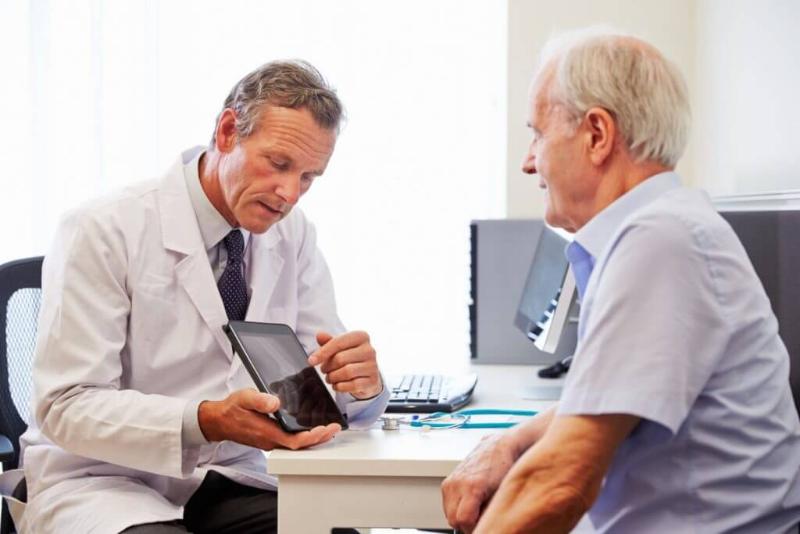Whether you are trying to maintain your overall health or you are experiencing symptoms of a potential heart condition, it is important to seek care from a professional like those at Cardiac Associates of North Jersey in Oakland. When the heart and circulatory system is involved, that professional will likely be a cardiologist. What does a cardiologist do? Keep reading to understand what a cardiologist does, the conditions they treat, and when it is best to give one a call.
A cardiologist is a doctor who is specially trained to diagnose and treat diseases and conditions affecting the heart and circulatory system. While they can work with patients to maintain healthy heart functions, many people wait until there are serious problems before seeing a heart doctor.
There are many sub-specialties within the field of cardiology. Some doctors choose to treat only children and adolescents. These are known as pediatric cardiologists. Others may specialize only in treating adults or in specialized procedures, like balloon angioplasty and electrocardiography, to diagnose and treat heart disorders. There are also cardiovascular surgeons who perform highly intricate surgeries on the heart.
1. You Have a Cardiac Event
A cardiac event is basically anything that causes damage to your heart. This is also commonly referred to as a heart attack. It involves your heart’s loss of ability to pump blood throughout your body. There are many causes of heart attacks, which is why it is so important to have chronic cardiovascular conditions monitored. Many people are at increased risk because of lifestyle or genetic factors. However, cardiac events can also come on suddenly with little warning.
Warning Signs
Be prepared to recognize the warning signs of a cardiac event. These include an irregular or unusually heavy heartbeat; shortness of breath, nausea, and profuse sweating; chest pain that may stay in your chest or radiate toward your arms or stomach, possibly even being mistaken for severe heartburn; unusual swelling in your legs or ankles; and a sudden anxious or nervous feeling that you can’t shake.
It is important that you get medical attention as soon as possible. Do not drive yourself to the hospital if you suspect a heart attack. Instead, call emergency medical personal to get the attention you need. They will ensure that you get to a cardiologist for treatment in the best possible manner.
2. Your Primary Care Provider Recommends It
If your primary care doctor has concerns about the condition of your heart, he or she may recommend that you see a cardiologist. If this happens, do not ignore their warnings. Instead, get a referral if you need one and schedule an appointment. Getting routine care from minor or underlying heart conditions can help you avoid damage to your heart’s muscles.
3. Your Blood Pressure Is Not Stable
If you have abnormal blood pressure, you should see a heart doctor to help stabilize it at a normal level. For most adults, a normal blood pressure reading is below 120/70. You do not want it to get too low, however, so regular monitoring is crucial.
Your doctor will probably have you record your blood pressure at home every day to ensure it is stable. High blood pressure can lead to damage to your veins, arteries, and heart. It may also be an indication that there is buildup in your arteries that could lead to a clog or clot.
4. You Have Chest Pains
If you experience chest pains as part of your normal daily routine. then you should seek medical advice. Some people experience pains that are the result of underlying medical conditions that need treatment or monitoring. For example, there could be swelling around your heart, which could lead to damage to the organ.
5. You Are Short of Breath
You should not experience shortness of breath as a regular part of the day. If you find that you are unable to catch your breath during normal activities, or you get winded very easily, schedule an appointment with a heart specialist. They can help you determine if your shortness of breath is being caused by your heart.
In some cases, the heart is unable to pump oxygenated blood effectively. This is often due to the weakness of its muscles. When this happens, your body does not get enough oxygen during normal operation. You may need to add supplemental oxygen, at least during physical activities.
6. You Have Complications With a Pregnancy
There are so many things that can go wrong during a pregnancy, and too much is at stake to take any chances, If you have been diagnosed with high blood pressure as a result of pregnancy, then have it checked out by a cardiologist. This may be caused by a condition called preeclampsia, which can be dangerous to your unborn baby and lead to miscarriage or preterm delivery.
7. You Have Been Diagnosed With Chronic Kidney Disease
People with chronic kidney disease are more prone to heart disease and high blood pressure. Your kidneys do a lot of jobs in your body. One of those is to help get rid of fluids and waste. If you have chronic kidney disease that causes fluid to build up in your body, then it may cause undue stress on your heart and other organs.
8. You Have Venous Disorders
Cardiologists can also treat disorders of the veins, such as varicose veins. These are commonly considered cosmetic, but they may lead to more serious trouble if not diagnosed and treated. If you have concerns about the appearance of varicose or spider veins, talk to your doctor about seeing a specialist for treatment.
No matter what cardiovascular conditions you are concerned about, it is important to seek help from a specialist who is trained to deal with them. Contact the professionals at Cardiac Associates of North Jersey in Oakland to schedule a consultation today. They can answer your questions and help you decide on a treatment plan designed to address your concerns and health goals.


